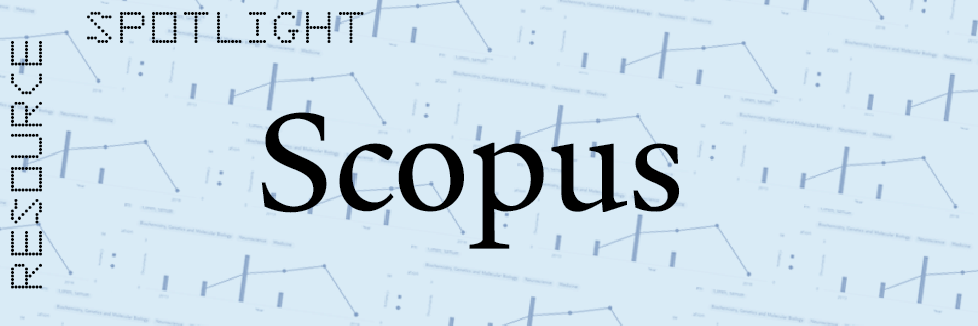
Welcome to Resource Spotlight! The Cushing/Whitney Medical Library provides access to an incredible array of databases, e-book collections, software and more. In this series of posts, we’ll be showcasing highlights from our collection.
In this edition of Resource Spotlight, we’ll be looking at Scopus. Scopus is the single largest abstract and citation database of peer-reviewed literature. Unlike Medline resources like PubMed and Ovid MEDLINE, Scopus is also the home to non-journal literature, like conference abstracts and books. Indexing more than 22,000 journals, Scopus covers science, technology, medicine, social sciences, arts, and humanities - making it a great resource for interdisciplinary projects.
Scopus’ user-friendly interface mimics Google search in its simplicity. No special syntax or subject headings are needed to conduct an initial search. Being an academic resource, though, Scopus offers many functionalities that Google does not:
- Author search and author profiles
- Search by affiliation to gauge the output of a specific school or department
- The ability to search for certain document types
- Optional advanced search functionality that lets you search specific fields like chemical or biological entities, editors, funding information, conference information and more
Offering data at the article, journal, and author level, Scopus’ broad range of content coverage makes its research impact information robust as well. Users can easily disambiguate authors and navigate to author profile pages that list publications, frequent collaborators, h-index, citation counts, disciplines that the author publishes in, and more. As mentioned above, this level of granular information is also available at the article and journal level.
Scopus is a great place to start your research, a necessary inclusion in most systematic reviews, and a massive time-saver in calculating h-indices.
With something to offer for students, clinicians, researchers, administrative staff and more start exploring Scopus today!
For questions on how to best use Scopus, feel free to contact Research & Education Librarian Caitlin Meyer.
